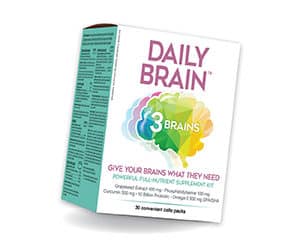
Check out these affordable ways to eat well, prevent nutrient deficiencies, be active, and support your mood without breaking the bank.
Make nutritious and economical FOOD CHOICES
Shocked by your recent grocery bill? Food prices continue to climb, and food insecurity has serious health implications for all of us. Healthy food access and consumption are essential and should not be compromised.
One of the first steps to eating well while protecting your wallet is meal planning.
This helps you create a focused grocery list and search for deals that allow you to save. There are useful phone apps that can help you shop for sales and compare store prices. Have you ever been told not to shop when hungry? It’s true! Research has shown that hunger can influence what a person buys, including non-food items.
You can also eat healthy on a budget with these tips:
- Don’t throw out leftovers: Turn leftovers into new meals or store them in the freezer for another time to decrease food waste.
- Discover your green thumb: Grow your own food to help reduce grocery purchases and improve access to food grown seasonally.
- Buy frozen fruits and vegetables: Healthy and convenient, frozen fruits and vegetables are full of nutrients and easily accessible. When purchasing fresh produce, select long-lasting items, such as apples, carrots, beets, and potatoes.
- Stock up on long-shelf-life foods: Nut butters, beans, canned fish, and whole grains can be purchased in bulk and last a long time when stored properly.
Prevent nutrient deficiencies with FUNDAMENTAL SUPPLEMENTS
The best possible source of vitamins and minerals is a healthy diet that limits processed food, but diets alone do not always provide enough of the nutrients we need. When faced with nutrient deficiencies, nutritional supplements can help, but are they worth the investment when on a strict budget? Supplements can vary in cost, so search for ones that are affordable and provide the most benefit for your family.
Here are a few examples:
Vitamin D: Many countries report a high occurrence of low vitamin D levels. Vitamin D supplements can help prevent deficiency, maintain immune function, and support bones and teeth. And the best part is that these supplements are inexpensive.
Magnesium: Unfortunately, a high percentage of North Americans do not consume the recommended daily magnesium amounts. Magnesium is an important mineral for normal growth and development as well as proper muscle and nerve function. Supplements provide a cost-effective solution to preventing potential deficiencies caused by stress and poor food choices.
Engage in low-cost EXERCISE ROUTINES
Regular physical movement helps improve mood, enhance quality of life, reduce anxiety, manage blood sugar and body weight, and support cardiovascular health. Expensive gym memberships and costly equipment are not required to achieve your fitness goals and promote your physical and mental health.
Low-cost exercise routines are accessible and can include:
- Following online exercise videos or fitness apps that target various fitness levels
- Using low-cost gear, such as resistance bands, dumbbells, and jump ropes
- Connecting with nature by walking, running, or biking outdoors
- Using outdoor exercise equipment at your local park
Manage stress and PREVENT BURNOUT
Higher inflation and increased financial limitations are sources of stress for many adults. When left unaddressed, chronic stress can affect your physical, mental, and emotional health, leading to difficulty concentrating, headaches, muscle tension, fatigue, moodiness, changes in eating habits, and social withdrawal.
Beat stress and prevent burnout with these inexpensive strategies:
- Consume healthy protein and fats, whole grains, and a rainbow of fruits and vegetables
- Stay hydrated with water and limit caffeine and alcohol intake
- Replenish nutrients commonly depleted during stress, such as vitamin C, magnesium, and B vitamins
- Get 7–9 hours of restful sleep each night
- Move, laugh, and breathe
Can you maintain your best health while facing increased financial limitations? Achieving optimum health does not have to be expensive. In fact, the greatest costs come when we neglect it. Affordable strategies to support energy, improve mood, and manage stress are essential to help us stay strong during these uncertain times.














